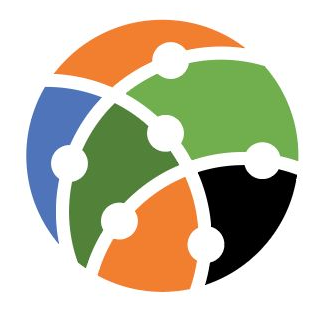Skip to content
bulletins: global digital compact
- The Global Digital Compact was co-facilitated by the Permanent Representatives of Sweden and Rwanda to the United Nations. Since the Zero Draft, it has undergone several revisions. The latest draft, circulated by the PGA on September 20, 2024, introduces key updates to address the pace and risks of emerging technologies, with a focus on human oversight and stronger international cooperation. It emphasizes digital technology in the non-military domain. Gender equality is given more prominence, tackling barriers for women and girls in accessing digital technology. The draft strengthens commitments to AI by establishing a multidisciplinary International Scientific Panel on AI. It also highlights data governance, privacy, and security, while introducing frameworks to mitigate online gender-based violence, disinformation, and child exploitation. The document emphasizes building resilience against misinformation, supporting journalists, and enhancing crisis-specific information systems. Notably, targets for internet speeds have been dropped from earlier drafts. This bulletin explores key themes from Rev.5 and the latest draft circulated by the PGA and the document’s transformation over several revisions.
- Get more detailed analysis on Global Digital Compact and the negotiations in the following ICH Special Bulletin!
- The co-facilitators of the Global Digital Compact (GDC), Sweden and Rwanda, released the zero draft of the GDC on April 1, 2024, followed by Rev.1 on May 15, 2024, Rev.2 on June 26, 2024, and the most recent revision, Rev.3, on July 11, 2024. Significant content has been modified, removed, and added throughout the consultation process. This bulletin will focus on comparing Rev.2 to Rev.3, identifying content changes, as well as removals and additions made in the third revision of the GDC document.
- The recent revision introduces key updates, emphasizing sustainable development and narrowing the scope of digital cooperation by excluding military considerations. It shifts focus toward government responsibility, strengthens gender equality, and simplifies environmental commitments. The document also broadens its scope by addressing the entire lifecycle of technologies, enhancing support for developing countries, and expanding access to connectivity, especially for women and girls. Additionally, it narrows focus on AI governance, supports STEM education, and highlights mental health in digital content moderation. Stay informed with the latest ICH Bulletin, highlighting all the revisions from Rev. 2 to Rev. 3 of the GDC.
- The second revision of the GDC was published on 26 June. Compared to the previous version, it includes changes in wording, deletions, or additions in almost every paragraph.
- It is stronger than Rev-1, and focuses on promoting international cooperation in digital technologies, with the goal of building “an inclusive, open, sustainable, fair, safe, and secure digital future for all.” However, the “leave no one behind” principle is nearly absent.
- In this document, Member States reaffirm their commitment to the World Summit on the Information Society (WSIS), the Geneva Declaration of Principles and Plan of Action, and the Tunis Agenda for the Information Society. The ITU and the Internet Forum’s work are also considered as relevant references.
- The GDC Rev-2 retains the commitment to develop targets, indicators, and metrics for universal meaningful, and affordable connectivity included in Rev-1, building a basis for its implementation follow-up mechanism.
- Get all the changes between the Rev. 1 and Rev. 2 of the GDC in the following ICH Bulletin!
- The third thematic deep dive or informal consultation on the Global Digital Compact (GDC) was held on 24 April 2023 at the Trusteeship Council Chamber. “The deep dives aim to share knowledge and views, as well as allow for contributions on a wide range of digital issues”. The Permanent Representative (PR) of Rwanda – H.E. Mr. Claver Gatete and PR of Sweden – H.E. Ms. Anna Karin Eneström are Co-Facilitators of the intergovernmental process negotiating the GDC.
- The fourth thematic deep dive on the GDC on Human Rights Online was held on 8 May 2023. At the beginning of the deep dive, United Nations High Commissioner for Human Rights Volker Türk and Najat Maalla, the Special Representative of the Secretary-General on Violence against Children, set the stage for the deep dive. Member State (MS), Intergovernmental agencies, private sector, and civil society representatives made their interventions after the briefings.
- The first thematic deep dive or informal consultations on the Global Digital Compact (GDC) was held on 27 March 2023 at the Trusteeship Council Chamber. The meeting started with a presentation from the Secretary-General (SG) of the International Telecommunication Union (ITU) Ms. Doreen Bogdan-Martin followed by briefings from Mr. Gbenga Sesan, Executive Director of Paradigm Initiative, representing civil society, and Mr. Karim Lesina, Executive Vice- President of Millicom, representing industry. Member State (MS) interventions followed the presentations after which civil society representatives made their interventions.
- The second thematic deep dive on the Global Digital Compact (GDC) was held on 13 April 2023 at the Trusteeship Council Chamber. The meeting started with briefings from Mr. Vint Cerf, Internet pioneer; Ms. Helani Galpaya, CEO at LIRNEasia; and Ms. Tripti Sinha, Chair of ICANN. Member State (MS) and civil society representatives made their interventions after the briefings.
- The brief proposes the development of a Global Digital Compact that would set out the principles, objectives, and actions for advancing an open, free, secure, and human-centered digital future, one that is anchored in universal human rights and that enables the attainment of the Sustainable Development Goals. It outlines areas in which the need for multi-stakeholder digital cooperation is urgent and sets out how a Global Digital Compact can help to realize the commitment in the declaration on the commemoration of the seventy-fifth anniversary of the United Nations (General Assembly resolution 75/1) to “shaping a shared vision on digital cooperation” by providing an inclusive global framework.
